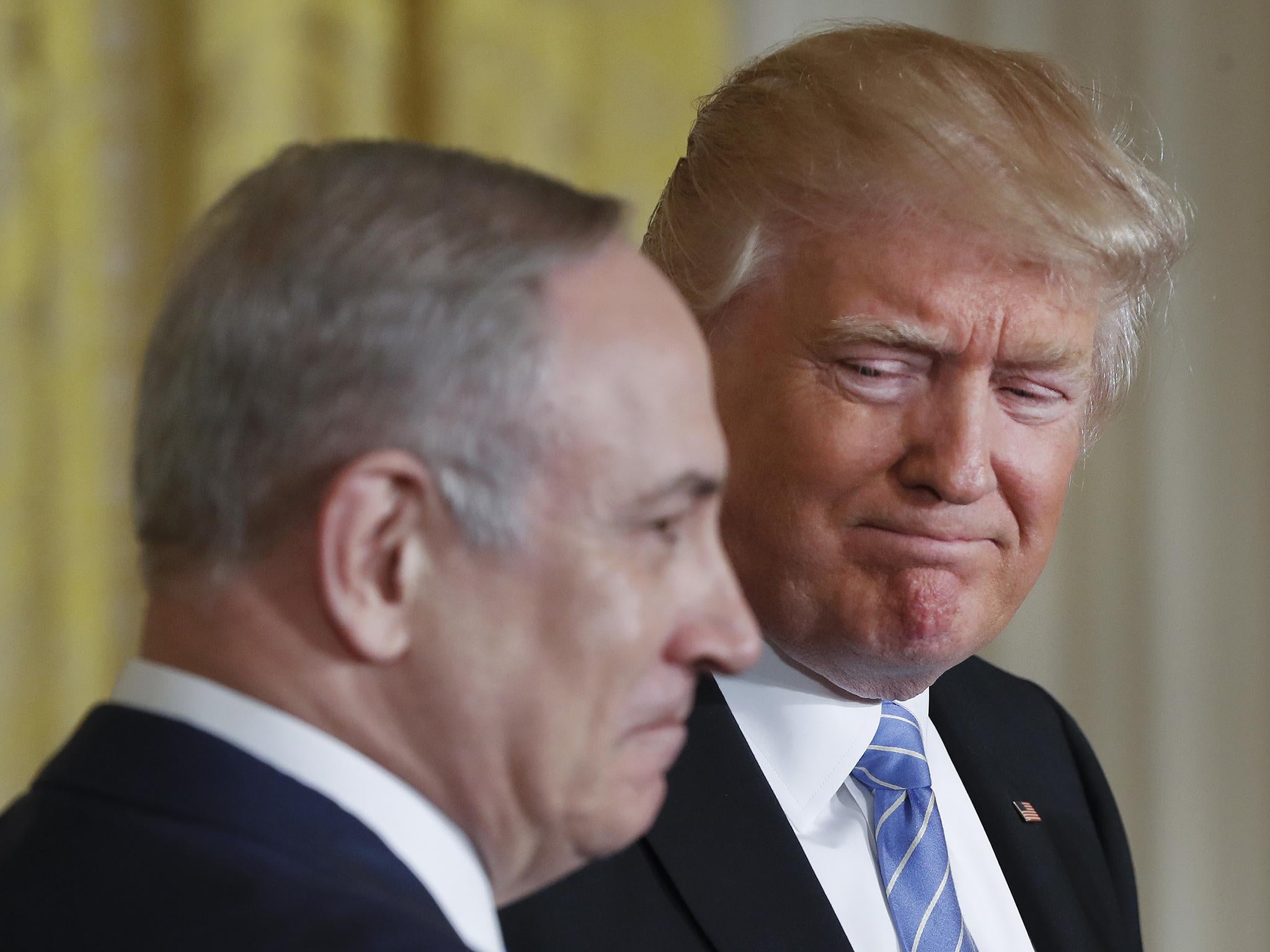How accusations that Donald Trump shared 'Israeli' secrets with Russia will impact the Middle East
If there is a spy working for the Israelis, it is just possible that Isis might be alerted to his identity by the naming of a city such as Raqqa but it is not very likely

The allegation that an espionage agent spying for Israel is in danger of losing his life because President Trump revealed classified information is deeply damaging to him. It is said that he told senior Russian officials that the spy had disclosed details of an Isis plot to blow up planes by placing explosives inside laptops carried on board.
The Israeli spy story is so damaging to Mr Trump because it is simpler and more concrete than vague accusations that his presidential election campaign was aided by Russia. But in both cases the allegations should be treated with caution because they come from US intelligence agencies and mass media that are engaged in a fierce struggle for power and influence with Mr Trump and are hence highly partisan.
Generally speaking, Western and regional intelligence agencies have a poor record in penetrating or gathering intelligence about Isis since it re-emerged as a military force in 2012-13. The identity of many of its leaders remains unknown and others who were reported killed have turned out to be alive. Isis itself is obsessively secretive and has executed many whom it accused of gathering information about it.
The degree to which classified information was disclosed remains uncertain. According to the report in The New York Times, claiming that Israel was the source of the secret intelligence Mr Trump disclosed to the Russians, it was only after his meeting with them that “the information was flagged as too sensitive to be shared, even among many American officials”.
The most specific accusation is that Mr Trump revealed the name of the city where the spy learned that Isis was developing a bomb to be hidden in batteries that could be placed in a laptop, kindle or iPad to be carried aboard a plane by a passenger. This has led to such items being banned by US and UK from the passenger compartments of aircraft flying from airports in ten Muslim countries. Critics of the move say these items may pose an even greater threat to a plane when stored in the hold of an aircraft.
Isis does not now control many cities or town in Iraq and Syria, having lost them over the last two years. In Syria, it still controls Raqqa, though this is expected to be attacked soon, part of Deir Ezzor not held by the Syrian armed forces and Mayadeen further east. In Iraq, it no longer controls significant urban areas as the siege of Mosul draws to a close, but in both countries it holds large rural areas. If there is a spy working for the Israelis, it is just possible that Isis might be alerted to his identity by the naming of a city such as Raqqa but it is not very likely.
The defence of Mr Trump by his National Security Adviser, Gen HR McMaster is being treated with scepticism by the US media, but may well be true on present evidence. He said that no secrets had been revealed and what was said “was nothing that you would not know from open source reporting”.
Israel has been quick to say that it still has confidence in its security relationship with the US, which is scarcely surprising since it is very much the junior partner. The reputation of Mossad tends to be higher abroad than inside Israel, where in the 1990s it was discovered that the country’s most trusted spy in Syria for over a decade had been invented by an Israeli security official who was pocketing large sums of money supposedly paid to the source who was meant to be working as a top level official in Damascus.
Mr Trump starts on his first foreign tour as President on Friday beginning in Saudi Arabia and going on to Israel, but the unrelenting furore in Washington since he fired James Comey as head of the FBI is likely to overshadow his talks with regional rulers. Saudi Arabia and the coalition of Sunni states that it leads will seek to draw the US into its escalating confrontation with Iran. While Saudi Arabia and Israel makes belligerent noises towards Iran, their policy has always been to encourage the US to fight for regime change in Tehran, but not to do so themselves.
The political battles between Mr Trump and his opponents in the US are now so intense that it will be difficult for him to initiate new policies in the Middle East or elsewhere. There are growing doubts about his political longevity in states like Saudi Arabia, Israel and Turkey who welcomed his election last November. They are finding that his policies in Syria and Iraq are so far very similar to those of President Obama whose military interventionism was greater than he was credited for. It is possible, however, that Mr Trump may feel that military action against Isis will help him survive the mounting political crisis at home.
Join our commenting forum
Join thought-provoking conversations, follow other Independent readers and see their replies
Comments